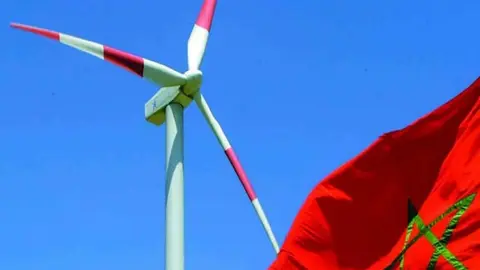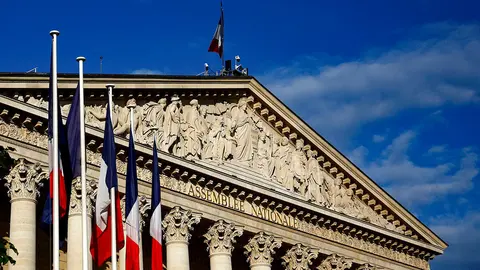The Maghreb and the challenges and opportunities of the 21st century
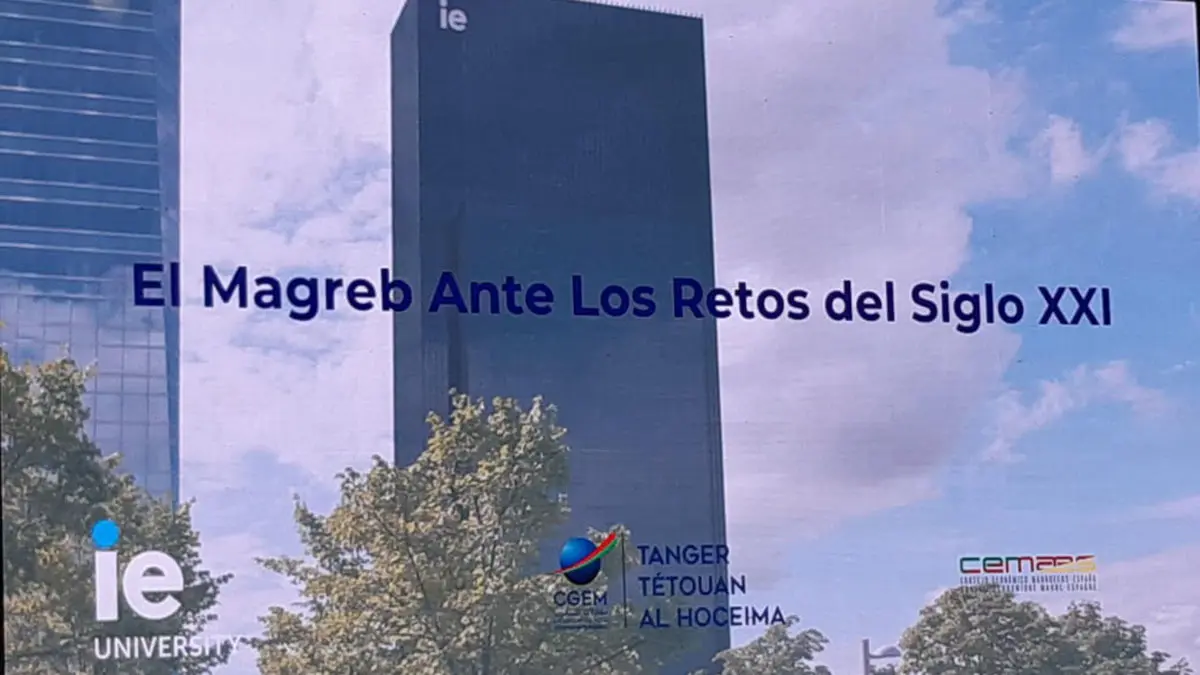
- These are the great challenges of the 21st century
- The Maghreb: key to Mediterranean and African development
- Initiatives for Mediterranean, Arab and African Maghreb integration
- The Maghreb in its interaction with the world
- Morocco: the non-European country with the highest degree of integration
- Morocco is a new alternative and a crucial axis for the new Marshall Plan
The Instituto de Empresa (IE-Madrid) organised, on 10 October in Tangiers, in collaboration with the Morocco-Spain Economic Council (CEMAES) and the General Confederation of Moroccan Enterprises (CGEM) of the Tangiers-Tetouan-Al Hoceima region, a masterclass on the subject of the Maghreb and its challenges and opportunities, a master class on the theme ‘Maghreb facing the challenges and opportunities of the 21st century’, led by Julio Crespo McLennan, historian, writer, former vice-president of the European Union Association of the National Cultural Institute (EUNIC) and former director of the Cervantes Institutes in London and Istanbul.
These are the great challenges of the 21st century
Historian Julio Crespo McLennan summarised the great challenges facing the world in the third millennium in four challenges arising from a global landscape filled with the threats of climate change, security, nuclear proliferation, weapons of mass destruction, rogue states and terrorism:
- The biotechnology revolution, which can eradicate diseases and malformations, improve agricultural production and eliminate hunger, but also threaten with bioterrorism, pandemic pathogens and genetically modified organs capable of changing human life.
- Global warming, as the greatest threat to life on the planet; from which no country is immune and seven out of ten countries most affected by global warming are in Africa. The phenomenon is due to five main causes: energy generation, product manufacturing, forest clearing, transport, food production and general consumption.
- The new era of multipolar disorder, which contains the United States as the first power in decline, China as a contender for global supremacy, the EU as one of the three great powers and Russia, India and Brazil as three aspiring great powers in addition to the multiple alliances for global governance such as the G2, G7 and G20.
- Global civilisation, a new civilisation emerging through the internet as a key tool for general access to information in which the great cultures remain: the West, China, India and the Muslim world.
- Global civilisation, a new civilisation emerging through the internet as a key tool for general access to information in which the great cultures remain: the West, China, India and the Muslim world.
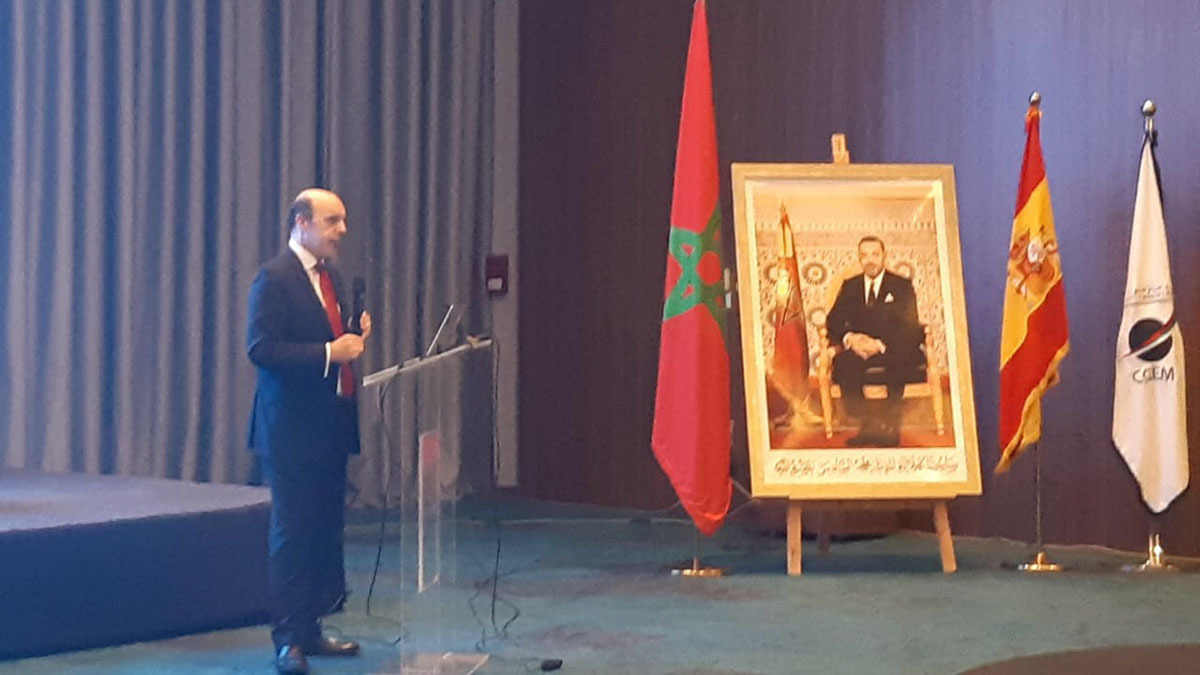
The Maghreb: key to Mediterranean and African development
According to McLennan, the Maghreb can play an important and pioneering role in Mediterranean and African development if it manages to achieve economic and political integration of the five countries through agreements and alliances with major world powers.
Similarly, the Maghreb countries could update agreements such as the Arab Maghreb Union, signed in 1989, and move forward with the pan-Arab free trade CAFTA agreement, signed by 14 countries in 1997, as well as join the dynamism of the African continental free trade area.
In this sense, Julio Crespo McLennan underlined that there is more trade with the European Union and little interregional trade, which pushed Morocco to sign a free trade agreement with Tunisia, Egypt and Jordan in Agadir 2001 in order to consolidate bilateral relations between countries in the region.
The integration of the Maghreb could generate several benefits such as the free exchange of goods, services, capital and movement of people, and turn it into a large bloc producing gas, oil, phosphate and investing in transport, manufacturing, energy, agriculture, banking and water supply.
At the same time, the population of the Maghreb, which is experiencing a demographic explosion (132 million people in 2050), represents an advantage in itself in the face of population stagnation in Europe and the need for labour, as it will become both a receiver and a sender of population. However, the northward exodus due to instability and poverty in Africa, and the scarcity of jobs and welfare states in crisis in Europe make this advantage a point of contention.
Initiatives for Mediterranean, Arab and African Maghreb integration
- The 1995 Barcelona Process for Peace and Security: aiming for economic development and stability between 44 countries in Europe and the Mediterranean.
- The Union for the Mediterranean in 2008.
- The 2005 European Neighbourhood Policy, which has given the Maghreb greater access to the European market.
- The Arab League, founded in 1945 by 7 Arab countries and currently comprising all Arab countries with the idea of uniting Arab peoples and defending their interests collectively.
- The continental African Union of 54 countries formed in Addis Ababa in 2001 for political and economic cooperation.
- ACFTA, signed in 2018 to promote free trade in Africa as a major achievement.
- The Arab Maghreb Union formed in Morocco in 1988 by the 5 Maghreb countries with aspirations to unite the oil, gas and phosphate industries and have a single currency. However, the forum for cooperation has not served much purpose because of the lack of compatibility between Arab unity and the survival of some of their regimes.
The Maghreb in its interaction with the world
The Maghreb establishes bilateral relations with the different world powers, although there remain relations that each of the five countries consolidates as it sees fit and according to its own needs independently of its neighbours, thus limiting the Maghreb's global capacity.
- Maghreb-EU: the EU is the Maghreb's most important partner and most active investor, cooperating with the southern neighbourhood to strengthen cybersecurity and the promotion of civil society.
- Maghreb-USA: the US has included the Maghreb in an overall US North Africa Middle East Economic Partnership and bilateral agreements based on investment and job creation.
- Maghreb-China: the China-Arab Forum 2018 which gave a loan of 20 billion and 106 million dollars as financial aid to the Middle East and North Africa.
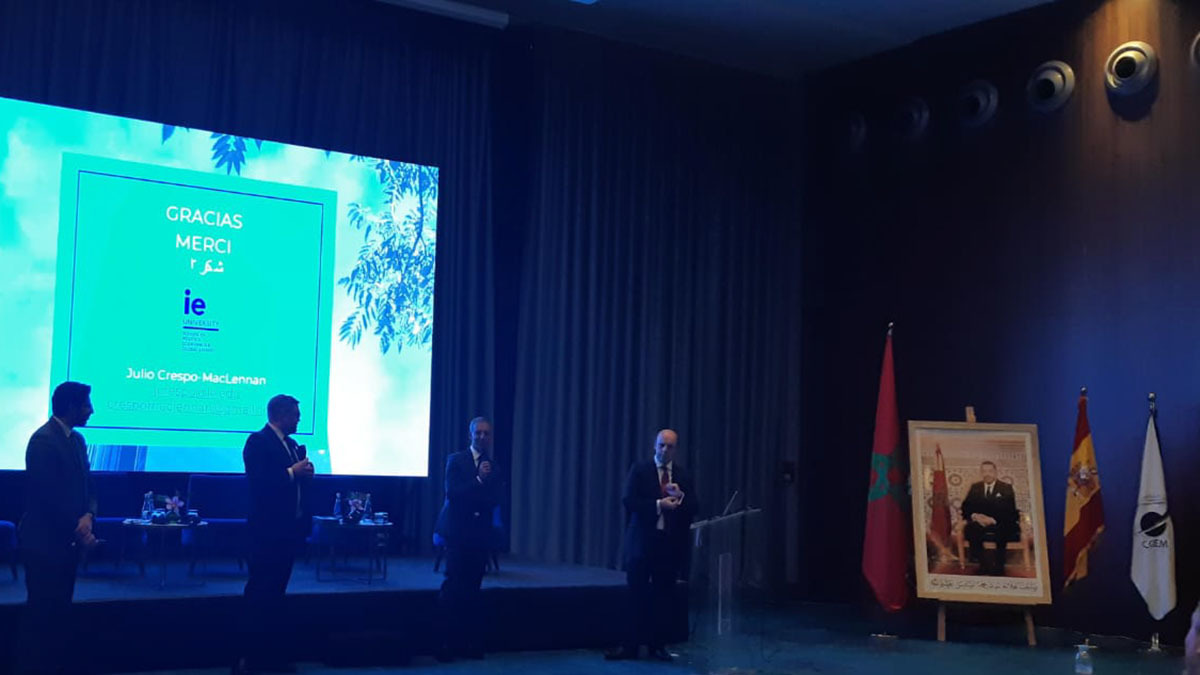
Morocco: the non-European country with the highest degree of integration
Julio Crespo McLennan argued that Morocco is considered a new non-European country with the highest degree of integration, given its efforts and initiatives at the level of the Maghreb, the Mediterranean and the African continent.
This is due to Morocco's great assets: a political system with a constitutional monarchy that guarantees political stability, alliances and better relations with the European Union, the United States and major donors, as well as being a leading African nation in manufacturing production.
McLennan pointed out that Morocco plays a crucial role in the realisation of the Maghreb's three fundamental objectives in its relationship with the West:
- Economic development and political stability in Africa.
- The revitalisation of the Mediterranean area.
- The strengthening of the Atlantic world in the face of the rise of the Pacific.
Morocco-European Union: in 2023, cooperation projects were launched with Morocco for 624 million for green transition (60% of the funds for photovoltaic energy in Ouarzazate are from the European Union), migration and various reforms. It is also the largest beneficiary in the southern Mediterranean of EU research and development projects in Madrid.
Morocco-Africa: Morocco is the leading African investor in West Africa, the second largest investor in sub-Saharan Africa with companies installed in 30 countries and with key projects such as the Africa-Atlantic gas pipeline. Morocco is also a leader in peace and security initiatives in the Sahel, as well as in the management of immigration, terrorism, climate change and food security.
Thanks to its collaboration with donors such as the United States, Japan, France, the UNDP and USAID, Morocco offers more than 7,000 scholarships annually to young Africans for training.
Morocco is a new alternative and a crucial axis for the new Marshall Plan
Historian Julio Crespo McLennan emphasised the role that the Alawi kingdom can play as a leading manufacturer in Africa and an alternative to China by supplying essential products in key sectors such as the automotive, textile, agriculture and renewable energy sectors.
The new Marshall Plan for the southern Mediterranean and Africa is, according to McLennan, a vital necessity for the stability of the African continent and Europe that requires cooperation between the European Union and the United States and private capital and allies with the capacity to receive and manage funds and lead projects such as Morocco, which fulfils all the conditions to be the core and the main axis to achieve this transformative plan.
The most visited country in Africa is considered, in this context, a cultural and scientific power with 48 universities and one of the largest publishers in the Arab world, as well as the main recipient in North Africa and the European Union of research funds and development projects to transform itself into a centre for research and development of the cultural industry.

